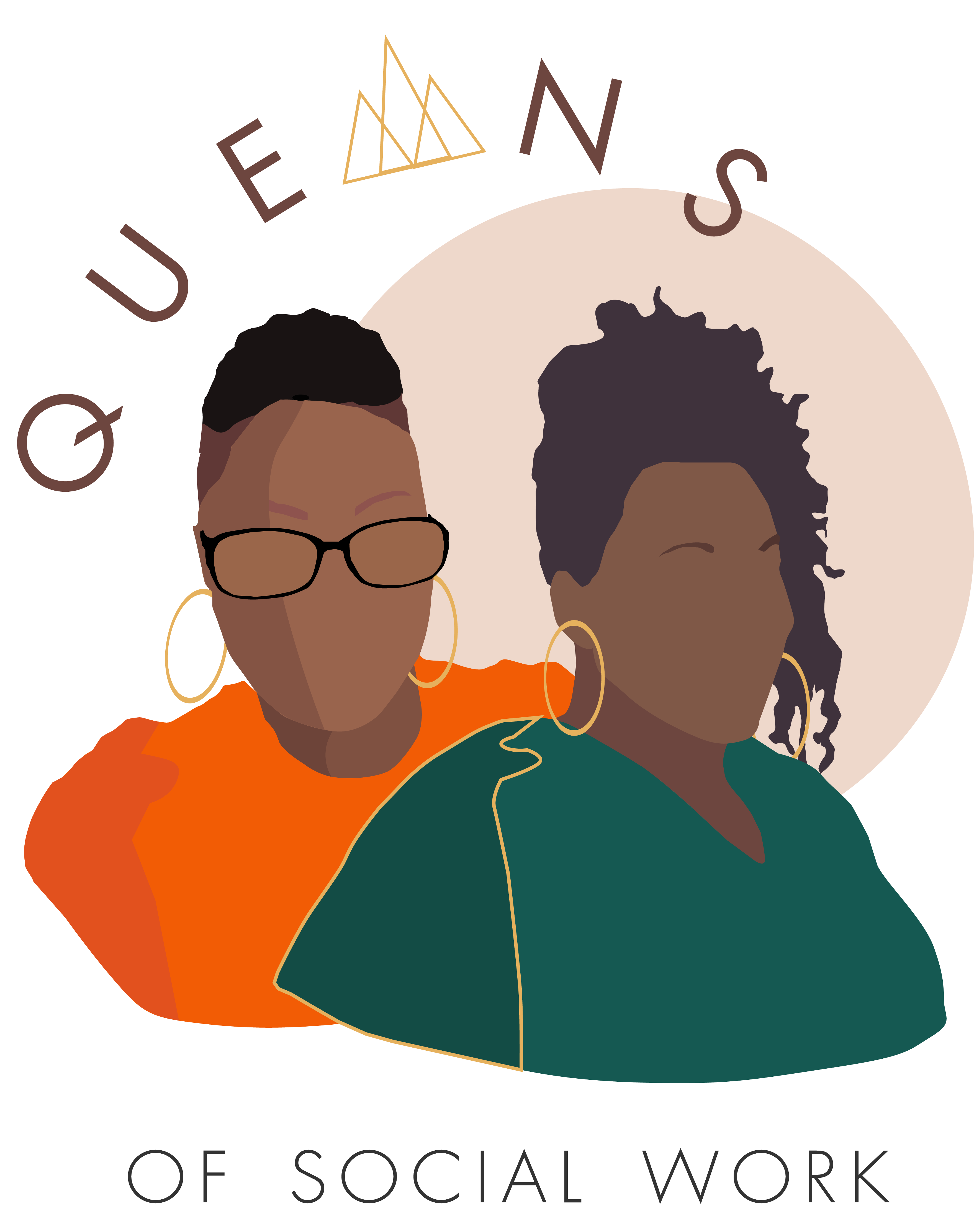Being a social worker is rewarding but it can also be overwhelming, especially when you’re navigating systems that weren’t designed with you in mind. For Black social workers, this challenge is even more complex. We often find ourselves juggling cultural advocacy, emotional labor and client outcomes with limited access to the practical tools and training we need.
That’s why we’ve created this powerful guide filled with social work tools, social work resources, intervention ideas, diagnosis codes and even therapist aids. Whether you’re a new graduate or a mid-career professional, this is your comprehensive go-to post to level up your practice while caring for yourself in the process.
1. Must-Have Social Work Tools & Therapist Tools for Daily Practice
These are essential items and digital tools that streamline assessments, interventions, documentation and follow-up:
Assessment & Intake Tools
-
DSM-5 Cross-Cutting Symptom Measures (downloadable PDFs): Use these to screen across diagnostic categories in a culturally informed way.
- Columbia Suicide Severity Rating Scale (C-SSRS): A gold-standard screener for suicide risk.
- ACE Questionnaire (Adverse Childhood Experiences): Helps understand intergenerational trauma and client resilience.
-
Social History Checklist (Customizable Word Doc): Create a culturally responsive form that includes immigration, racial identity, community impact and spirituality.
Progress Notes & Documentation Aids
- DAP Note Template: Data, Assessment, Plan format—less clinical than SOAP and often preferred in community settings.
- Narrative Therapy Progress Template: Tailored for strengths-based, culturally validating notes.
-
SMART Goal Worksheets: Helps clients create specific, measurable goals and gives you clean documentation for audits or progress evaluations.
Digital Tools for Organization & Client Support
- SimplePractice or TheraNest: EHR platforms with built-in forms, HIPAA compliance and client scheduling.
- Google Workspace: Use shared folders for supervision notes, form templates or anonymous peer case consults.
-
Calendly + Zoom Integration: Simplify scheduling, especially for telehealth or hybrid case management.
2. Social Work Resources to Make Your Job Easier and More Impactful
Here are curated social work resources that save time, reduce burnout and increase clinical effectiveness:
Downloadable Therapy Forms and Screeners
- Therapist Aid: Offers high-quality, printable worksheets for CBT, DBT, mindfulness, and grief work.
-
PsychPoint: Great for treatment planning and psychoeducation.
Diagnosis Codes (ICD-10 & DSM-5 Aligned)
Here are a few diagnosis codes commonly used by social workers in clinical practice:
- F41.1 – Generalized Anxiety Disorder
- F32.0 – Major Depressive Disorder, Mild
- F43.10 – Post-Traumatic Stress Disorder (PTSD)
- F50.9 – Eating Disorder, Unspecified
-
Z63.5 – Disruption of Family by Separation/Divorce
Use these with supervision and always document cultural and systemic context when applying diagnostic labels.
3. Social Work Associations to Join as a Black Social Worker
Membership in professional associations opens doors to community, leadership and continuing education.
Key National Organizations
-
National Association of Black Social Workers (NABSW): Cultural advocacy, scholarships and mentorship.
- NASW (National Association of Social Workers): Offers CEUs, ethical guidelines, job boards and policy updates.
-
Clinical Social Work Association (CSWA): For clinical licensure support and supervision training.
Local Chapters to Check Out
- Your state’s NASW chapter often hosts local events, training sessions and advocacy campaigns.
-
Look for state Black social work collectives or affinity groups on LinkedIn or Facebook.
4. Therapist Aids and Printable Tools for Session Support
Therapist aids can make or break a session. Here’s what to keep in your physical or digital toolkit:
Top Therapist Tools to Print or Use in Sessions
- Feelings Wheel (Multilingual if possible): Especially helpful for BIPOC clients navigating emotional literacy.
- Cognitive Distortion Worksheet: Identifies distorted thinking patterns and reframes them.
- Grounding Techniques Printout: Visuals and quick steps to anchor anxious clients.
- Self-Care Bingo: Makes wellness feel playful for clients and workers alike.
-
Cultural Genogram Template: Explores generational, racial and community legacies.
5. Social Work Training to Build Confidence and Cultural Power
Investing in social work training is key to long-term success, especially in under-resourced communities.
High-Impact Training Options
CEU Providers for BIPOC Clinicians:
- Melanin & Mental Health
- Clinicians of Color
-
Therapy for Black Girl CEU Events
Popular Training Topics to Search For:
- Trauma-Informed Care for Black Youth
- Ethics in Cross-Racial Therapy
- Microaggressions & Countertransference
- Emergency Room Social Work
- Group Therapy Facilitation for BIPOC Populations
6. Clinical Interventions That Center Black Experience
Great interventions take into account the full lived experience. Here are a few methods worth exploring or adapting:
Culturally Responsive Interventions
- Narrative Therapy: Empowers clients to redefine stories shaped by racism, immigration or marginalization.
- Motivational Interviewing (MI): Excellent for rapport and ambivalence, especially with teens and young adults.
- CBT Adaptations: Use metaphors rooted in culture, music or spirituality to make CBT more relevant.
- Somatic Interventions: For trauma clients who hold emotions in the body (use culturally grounded breathwork or rhythm exercises).
-
Liberation Psychology: Frames therapy within systems of oppression, justice and healing.
Closing the Loop: Real Talk for the New Social Worker
If you’re new to the field or just feeling new because you’re entering a different chapter of your career, we’ve got something for you.
Check out our podcast episodes:
1. The New Social Worker
An honest conversation with a Haitian American social worker navigating early career struggles, unsupportive supervision and professional burnout.
2. The New Social Worker Part II
A follow-up episode filled with resilience, encouragement and the lessons learned while pushing through.
These episodes expand on the tools above with lived experience, humor and heart. Give them a listen to feel seen, supported and inspired.
Ready for More Tools, Resources and Sisterhood?
Stay tuned to our Queens of Social Work podcast, blog and follow us on Instagram @queensofsocialwork for weekly content drops, career advice and discussions just for social workers of color. And don’t forget to check out our full collection of journals, guides and uplifting merch on our shop page.
